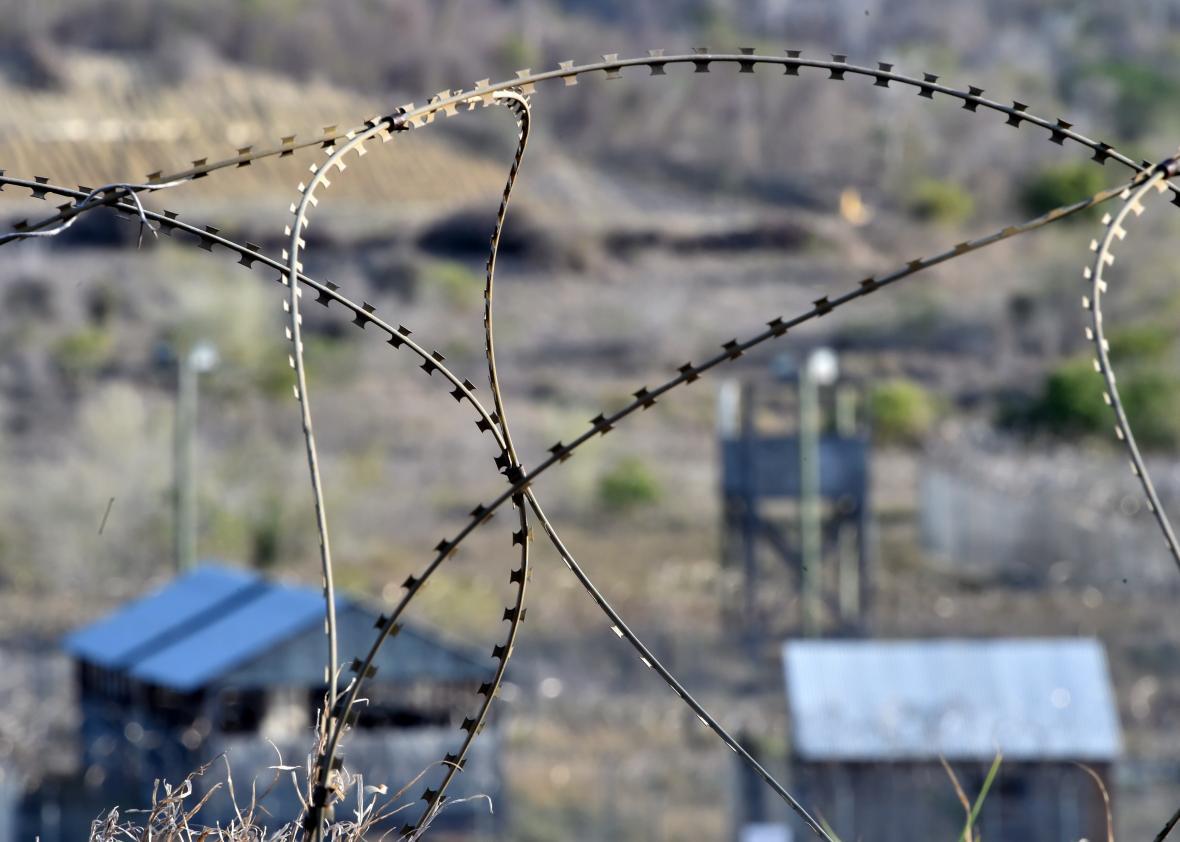Arguing that detaining terrorists at Guantánamo Bay “does not advance our security, it undermines it,” President Obama on Tuesday announced a new plan to close the controversial facility. Obama campaigned on closing Guantánamo, saying he would order it done in his first week in office, but that job remains unfinished in the final year of his second term. This latest announcement will likely do little to change that. Since the plan requires Congress to approve the transfer of the last of the facility’s detainees to the United States, which it is almost certain to reject, it’s not clear how this proposal differs significantly from previous ones. Crucially, the president did not discuss whether he would take executive action to close the prison if Congress rejects the proposal.
Of the nearly 800 detainees who have been held at Guantánamo, 91 remain. Thirty-five of those have been recommended for transfer to other countries. The majority of that 35 are from war-torn Yemen, where the Defense Department will not send them due to security concerns. This announcement suggests, though, that the State Department will continue efforts to negotiate their transfer to third countries.
The latest Obama plan will also accelerate reviews of the cases of those remaining. Ten of these detainees are currently being tried in the military commissions system, including 9/11 planner Khalid Sheikh Mohammed, or are appealing their convictions. Obama said Tuesday that these trials would continue but indicated his preference for trying terrorists in U.S. civilian courts, noting the successful convictions of shoe bomber Richard Reid, underwear bomber Umar Farouk Abdulmutallab, Boston marathon bomber Dzhokhar Tsarnaev, and attempted Times Square bomber Faisal Shahzad.* “Even as we use military commissions to close out the cases of some detainees … this type of military commission should not set a precedent for the future,” he said.
At least some detainees will continue to be held as prisoners of war and are considered ineligible for either transfer abroad or trial. According to the plan released Tuesday, the Department of Defense has identified 13 potential facilities in the United States where detainees could be transferred. They were not specifically named Tuesday, though military installations in Leavenworth, Kansas, and Charleston, South Carolina, and a pair of federal supermax prisons in Colorado have been identified as potential sites.
Congress has put up serious roadblocks to moving detainees out of Guantánamo. Most recently, provisions were attached to the annual defense authorization bill, which Obama reluctantly signed, prohibiting funds from being used to move detainees to U.S. soil. In his statement from the White House on Tuesday, Obama lamented that Guantánamo had become a partisan issue, noting that both former President George W. Bush, at the end of his second term, and 2008 Republican presidential nominee John McCain had wanted to close the facility. He argued that public opposition to closing the facility had been “fanned by misinformation,” arguing that “the notion of having terrorists held in the United States rather than in some distant place can be scary. But part of my message to the American people is that we’re already holding a bunch of really dangerous terrorists in the United States because we threw the book at them and there have been no incidents.”
That’s all well and good, but Republicans in Congress are already indicating that they have no intention of budging on their opposition to closing Guantánamo. Leading Republican presidential candidates are campaigning on expanding it.
So the real question remains whether Obama will be willing to override Congress through executive action, as he has with measures addressing carbon emissions, immigration, and gun control. In November, former White House counsel Greg Craig and Guantánamo envoy (and former Slate publisher) Cliff Sloan argued that the president could order the transfer of the detainees, despite congressional prohibitions, under Article II of the Constitution, which designates him the commander in chief of the military.
This hypothetical move, even more than his previous executive orders—some of which are still awaiting rulings by the Supreme Court—would be a stretch of his constitutional authority and is opposed even by Republicans, like McCain, who want Gitmo closed. It would be an ugly fight, but until we know whether Obama plans to wage it, Tuesday’s announcement doesn’t do much to alter the status quo.
Obama lamented Tuesday that “he’s spent seven years now trying to get this thing closed” and said, “I don’t want to pass this problem on to the next president.” Without executive action, that seems almost guaranteed to happen.
*Correction, Feb. 23, 2016: This post originally misspelled Dzhokhar Tsarnaev’s first name.
